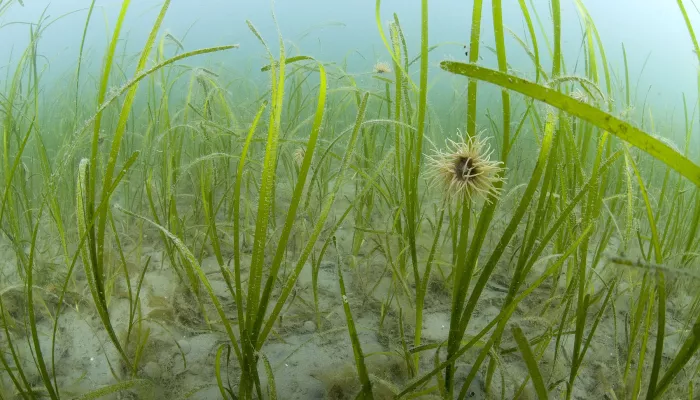Gutweed
This grass-green seaweed is sometimes known as Grass Kelp and grows on pretty much every shore in the UK.

Learn about all the shapes, colours and forms of seaweeds and seagrasses in Kent using our handy species explorer guides.
This grass-green seaweed is sometimes known as Grass Kelp and grows on pretty much every shore in the UK.
Sea lettuce is unmistakeable - most often a bright green and always translucent, it is found on all UK coasts.
The tops of Oarweed fronds can be spotted floating on low tides. Kelp beds are an important habitat, providing shelter for many other marine creatures.
Sugar kelp is the crinkly belt like kelp that can often be found in deep rockpools on the lower shore or washed up on the beach after rough seas.
This yellow-brown seaweed grows in tufts at the very top of rocky shores. Its fronds curls at the sides, creating the channel that gives Chanelled Wrack its name.
This brown seaweed lives high up on rocky shores, just below the high water mark. Its blades are usually twisted, giving it the name Spiral Wrack.
This brown seaweed lives in the mid shore and looks a bit like bubble wrap with the distinctive air bladders that give it its name.
This purply-brown seaweed is a common feature on our rocky shores and on our dinner plates.
This small reddish-purple seaweed grows in small branching fans on rocky shores. It is widely used in the food industry - and might have been used to produce your ice cream, beer or even jelly!
This yellow-brown seaweed grows in dense masses on the mid shore of sheltered rocky shores. It is identifiable by the egg-shaped air bladders that give it its name.
This brown seaweed lives in the lower shore and gets its name from the serrated edges to its fronds.
This seagrass species is a kind of flowering plant that lives beneath the sea, providing an important habitat for many rare and wonderful species.
A bushy brown seaweed that appears bright blue underwater.
A scarce but distinctive brown seaweed with curved, funnel-shaped fronds. It is a warmer water species at the northern edge of its range on the south coast of England.